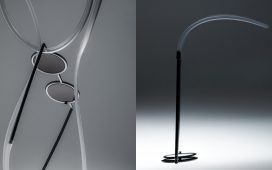Thousands of people are expected to descend on Cornwall to witness the first orbital rocket launch from UK soil in what is being heralded as the start of a “new era” for the British space industry.
As long as there are no last-minute technical hitches – and the Cornish weather does not spoil the party – the historic Start Me Up mission will take off on Monday night from Spaceport Cornwall, blasting nine satellites into orbit.
It will be a triumph for the spaceport, which has faced scepticism over the years that such an adventure could be launched from an area more associated with surfing than hi-tech projects, and boosts the UK’s position as an up and coming space nation.
Melissa Thorpe, the head of Spaceport Cornwall, which is based in a corner of Newquay airport, said she thought she would feel nervous but in fact was “confident and really focused”.
She said it was a good “underdog story” that had started off eight years ago with “not many people” believing it would happen.
“I hope people will feel some inspiration, some aspiration, and feel proud of how we are representing Cornwall going to the stars,” she said. “There’s a lot of doom and gloom out there. It’s exciting, different, it’s also a bit of an underdog story.”
During a press conference at the spaceport, Thorpe was asked if the project could lead to humans travelling to space from Cornwall.
“We’re focused 100% on satellite launch at the moment,” she said. “That’s challenging enough before you add humans to that. As a spaceport we’re really interested in human space flight, the opportunities for researchers going up for microgravity experiments, for instance, but also there’s a lot going on in the tourism side of it. We’ll start to look at the opportunities.”
Thorpe described how she had been inspired by gazing at the northern lights in her native Canada. “The spark was the night sky. What is out there, what are humans going to do out there, what are we going to find there?”
She said she thought the Virgin Orbit team, who are in charge of the launch – their first outside the US – would be surprised at how many people were turning up to get a glimpse, as usually only a few fans turn up at the wire fence at their base in the Mojave desert.
Two and half thousand people snapped up tickets within two hours for the Cornish launch, with a silent disco laid on to keep the blood pumping on what could be a cold night.
At the centre of the mission is a repurposed Boeing 747 aircraft called Cosmic Girl fitted with Virgin Orbit’s LauncherOne rocket carrying the nine satellites. The 747 will take off from Spaceport Cornwall before releasing the rocket at 35,000ft over the Atlantic Ocean to the south of Ireland.
The plane will return to the spaceport, while the rocket will take the small satellites, with a variety of civil and defence applications, into orbit. They will be the first satellites launched into space from Europe.
Ian Annett, the deputy head of the UK Space Agency, hailed it as a “new era for space”. He said the industry generated £16.5bn a year in the UK and employed 47,000 people. “This will lead to new careers, improved productivity and inspire the next generation of space professionals, and this is just the beginning,” he said.
Dan Hart, the CEO of Virgin Orbit, said Monday night was looking good – but they would only launch if they were sure everything was perfect.
“Right now everything is green, the rocket was armed [on Saturday], we’ll be loading fuel,” he said. “We’re in full motion right now, gearing towards a launch.”
But if they saw “anything interesting” they would delay the launch, he said. “If winds or precipitation or lightning is in the area we will look very closely. We’re going to proceed very cautiously. The team right now is smiling but their eyes are laser-sharp.”
As the wind howled outside, Hart said: “The airplane is very robust but we keep an eye on crosswinds because we have a rocket under the wing.”
Hart agreed the project was a boost for the UK and Cornwall. “Having spent time in Cape Canaveral, there’s something about knowing someone down the block is working on a space flight mission that breaks the barriers down, and makes it go from being something that is far away to something that is around the corner and something [about which] a child would say: ‘I could do that.’
“Space has become such an incredible part of our life, from the way we communicate to the way we navigate to the way we understand our world and the heavens beyond, but one of our missions is to open up space to everyone. Space is not a faraway thing that someone else does any more. It’s what communities across the world do.”
Asked what changes the team, accustomed to working in California, had made, Hart joked: “I would say pasties versus hamburgers. It’s a significant shift.
“In terms of the tech and how we operate it’s a little different weather to Mojave, but otherwise, the team is turning the wrenches in the same way.”











